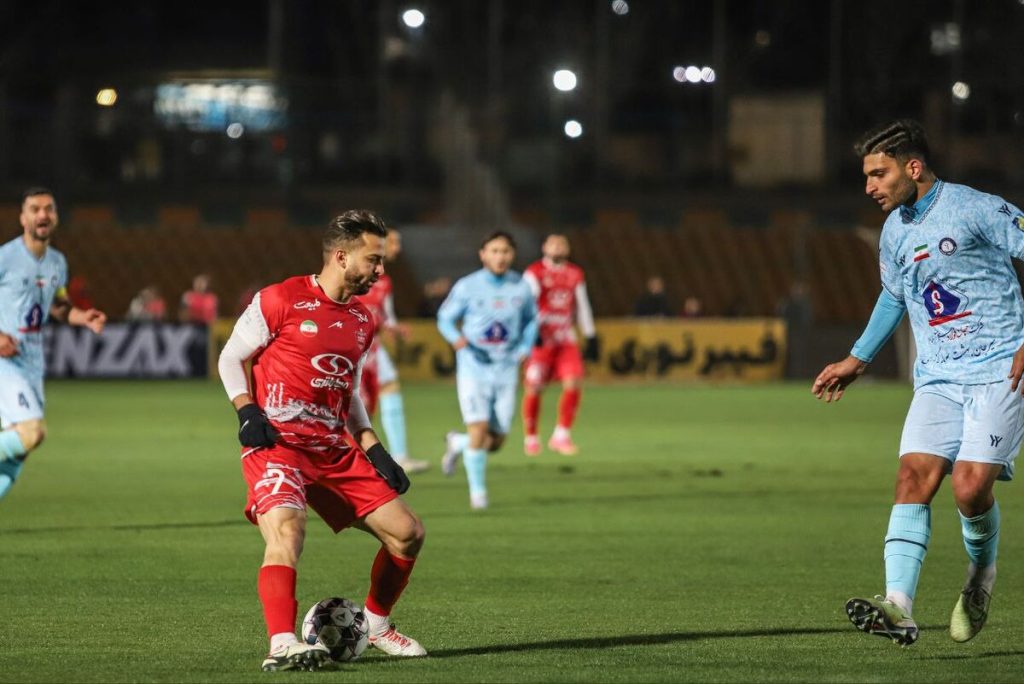
Rewritten Title: Persepolis’s Attacking Struggles: A Tactical Analysis Beyond the Sidelines
Article:
A former Persepolis star has delivered a candid assessment of the team’s sluggish start to the season, pinpointing tactical and personnel issues for the lack of attacking impetus, while firmly backing the current coaching staff.
In an exclusive interview, former player Hassan Khan Mohammadi expressed concern over the team’s current form, describing their performances as uncharacteristic of the perennial champions. “Unfortunately, the games we have seen from Persepolis this season have not been champion-like,” Khan Mohammadi stated. “The team creates very few chances and shows little desire to attack. The full-backs are not pushing high up the pitch, and we lack numerical superiority in the opponent’s half.”
Systemic Issues in Attack
The analysis goes deeper than mere effort. Khan Mohammadi highlighted a critical flaw in the team’s build-up play. “So far, we have not seen any fluid, forward-moving football from the team,” he explained. “We lack numerical advantage in the final third and are outnumbered in the opponent’s box. This is why we can’t secure wins and are only managing draws.”
He expressed hope for an improved organization from defense to attack in the upcoming match against Gol Gohar Sirjan, emphasizing the need for better ball progression to secure a vital victory.
A Warning Against a Tricky Opponent
Looking ahead to the sixth-week fixture, the former stalwart issued a caution. “Gol Gohar and its players have proven they defend very well under Mehdi Tartar’s system and are dangerous on the counter-attack,” he noted. “This team can sometimes play a cunning, disruptive game, which could cause problems for Persepolis. The team must play with extreme focus and concentration.”
The Root Cause: A Squad Lacking Balance
When asked why Persepolis fails to play fluent, progressive football, Khan Mohammadi identified a fundamental issue: an unbalanced squad due to flawed recruitment. “In my opinion, we should have signed players for their specialized positions, but unfortunately, our recruitment was not good,” he said. He cited the example of using winger Farshad Ahmadzadeh as a left-back as symptomatic of the problem.
This nuanced view leads him to separate criticism of the team’s playing style from the constraints placed on the manager, Yahya (Vahid) Hashemian, in team selection.
A Call for Patience and Stability
Despite the poor results, Khan Mohammadi strongly advocated for stability, dismissing any talk of a managerial change. “No, it is far too early for such a decision. We must give the technical staff some time,” he asserted. “If we act impulsively, we will become like our rivals Esteghlal, who have constantly changed coaches in recent years. We must be a little patient until conditions gradually change for Persepolis to get the necessary results.”
He further defended the manager’s persistent use of a single striker, pointing to a lack of adequate personnel. “We don’t know why a player like Dursun left, but we know he performed well alongside Alipour in the attack. Do we currently have a player like Dursun to pair with Alipour? A striker like Alipour needs a complementary player inside the penalty area, but unfortunately, we don’t have such a player. Therefore, Yahya Hashemian is forced to work with these conditions.”
A Legacy of Inspiration
On the eve of the tenth anniversary of the passing of former captain Hadi Norouzi, Khan Mohammadi reflected on the emotional lift his memory could provide. “The spirit of dear Hadi is certainly important to all Persepolis fans and players,” he said. “We remember under Branko, after Norouzi’s passing, what a storming start Persepolis had and the championships they achieved. I hope now, too, the team will approach the matches with high motivation and morale, and we will only witness Persepolis victories from here on out.”


